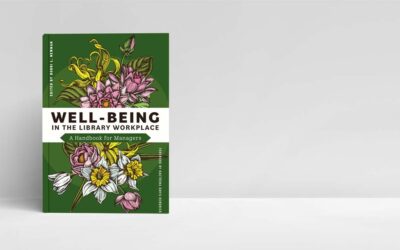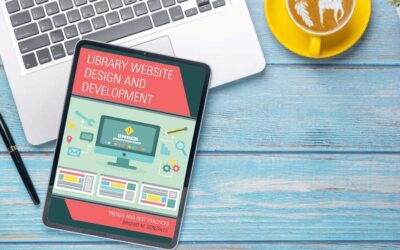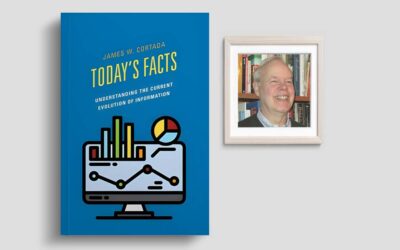Interview with the Editors: Harnett and Cantwell, Roles for Librarians on Boards and Committees
Lauren Hays
Susan M. Harnett and Laureen P. Cantwell co-edited Finding Your Seat at the Table: Roles for Librarians on Institutional Regulatory Boards and Committees. For librarians who work with communities that conduct research, this is an important topic. My interview with them is below.
1. Please introduce yourselves to our readers.
Susan: I’m a medical librarian with Nemours Children’s Health in Jacksonville, Florida and a member of the Institutional Review Board at Nemours. Previously, I was the Medical Information Services Librarian at Borland Library, University of Florida in Jacksonville. I have served on both the IACUC and/or IRB at UF, Eastern Virginia Medical School, and Naval Medical Center, Portsmouth.
Laureen: I’m the Head of Access Services & Outreach at Colorado Mesa University (CMU) in Grand Junction, Colorado, and a member of the Institutional Review Board there. Previously, I was the Reference & Distance Services Librarian at CMU and the Instructional Services Librarian at the University of Memphis in Tennessee.
2. Briefly summarize Finding Your Seat at the Table: Roles for Librarians on Institutional Regulatory Boards and Committees.
Service on the Institutional Review Board (IRB) and the Institutional Animal Care and Use Committee (IACUC) is an uncommon activity for health science librarians, let alone among librarians with non-science specializations. This book provides librarians, library administrators and other relevant stakeholders with historical and foundational knowledge of the IRB and IACUC, and details librarians’ opportunities and efforts to create services and partnerships through participation on these committees.
3. Why did you decide to edit the book?
Susan: The late Dean of the Brickell Library at EVMS, Judith Robinson, was instrumental in making the case for librarians to serve on IACUC and IRB. She approached me one day and told me I should write a book on the topic. I wasn’t quite ready or experienced enough at that time, back in 2007! As I moved on to UF and became a voting, non-scientist member of the IACUC and became acquainted with other librarians serving on these committees, it was clear that many librarians were interested in doing this work but felt intimidated by the perceived complexity of the process, or needed a way to justify their inclusion to administrators. The book evolved from the idea that we could define, describe and demystify the work of these committees so that more librarians might be encouraged to participate, and highlight the diversity of roles librarians can provide to researchers and the institution.
Laureen: Susan and I had both sent in book proposals for this project, which was on the list of desired book proposals from the Medical Library Association. After Susan’s was selected, I was offered the opportunity to co-edit with her and readily joined the project. I’d had experience with book editing projects and working with chapter authors and things like that, so Susan and I joining forces was a really nice combination of skills and experience. Very kismet! I knew there were lots of great reasons for librarians to be on or connected with IRBs and IACUCs, but I also knew that it wasn’t as common as I’d love for it to be, so we really worked, as Susan says, to reduce intimidation and heighten the sense of utility and librarians’ confidence in justifying engagement with these important institutional bodies. It was really exciting to advocate for roles we, as editors, so enthusiastically support.
4. What are your own experiences with Institutional Review Boards (IRB) and Institutional Animal Care and Use Committees (IACUC)?
Susan: I have been both ex-officio and voting member of both committees. Before I served on these committees I had very little understanding of the process of human subject and animal research. It’s been extremely helpful for me as a medical librarian to have this understanding of the research process. I’m also interested in Consumer Health and have used this knowledge in trainings, to explain the process of research, and how to read and interpret studies to people without a scientific background. Serving on IACUC was especially informative. Like most people, the thought of animal research was abhorrent to me. I am still not comfortable with it; but I have a better understanding of the process and I feel a little better knowing that committees like the IACUC exist to enforce compliance and humane practices in research.
Laureen: I’m a voting member on our IRB at CMU, and that’s the first institution at which I’ve been able to serve on the IRB. I actually got interested in librarians on IRBs while working in Memphis and wondered about the frequency with which librarians had IRB roles and ended up working with Doris Van Kampen-Breit at St. Leo University. We did some research on what little was out there about librarians on IRBs and published an article in Collaborative Librarianship in 2015 on the topic, advocating for librarians’ potential utility on such committees. It’s actually been fun serving as a voting member; as administrative staff at my institution, we are fortunate to be members of many faculty committees, but we are typically ex-officio and so having a voting role feels cool. I also used that article to make a bid to have a librarian on our IRB at CMU—so there hadn’t been that role prior to the article or the book project, but my serving on our IRB is living proof that such documentation can help position librarians to advocate for serving on IRBs and IACUCs.
5. How do you see the work of the IRB and IACUC impacting the work of librarians? How do you see librarians impacting the work of the IRB and IACUC?
Both editors: Librarians are deeply connected to the research of their institutional communities. Being even an ex-officio member of the IRB or IACUC gives librarians (literally) “a seat at the table” for existing and developing research agendas within their community, and not just those of faculty but also undergraduate and graduate students, too. We also historically have a role in the searching processes of research, right? So having eyes on the background information of a human subjects or animal research initiative can be useful too – Johns Hopkins found that the researcher-determined date limitations of a literature review missed information that would have prevented an adverse outcome in a medical study, for example. Having someone thinking through such concerns, or potential issues, on the committee – or part of the information flow of the IRB/IACUC – is definitely useful. Beyond that, we have chapters in the book that go over burgeoning researchers’ needs, like search training, data management, research question development, research grant discovery, grant writing, diminishing the jargon-heavy nature of consent forms, reporting guidelines, and much more. So really, the work of our researchers impacts lots of what we do, right down to our collection development efforts and programming/workshop offerings and how we seek to develop ourselves professionally in order to best-serve our constituents—librarians want to help and involvement with the IRB and IACUC can help us determine the best ways to help, or new ways to help. In return, hopefully IRBs and IACUCs receive better-prepared study proposals, generated by better-prepared and more research process-fluent students and faculty, and more!
6. What are two things you hope all readers take away from the book?
Both editors: My hope is that librarians who are interested in working with and on these committees will feel encouraged to make the case for their own participation. I hope that non-librarians will find the content interesting, that it will help them understand the research process and how the committees work to protect both human and animal subjects.
Lauren Hays
Dr. Lauren Hays is an Assistant Professor of Instructional Technology at the University of Central Missouri, and a frequent presenter and interviewer on topics related to libraries and librarianship. Please read Lauren’s other posts relevant to special librarians. Take a look at Lucidea’s powerful integrated library systems, SydneyEnterprise, and GeniePlus, used daily by innovative special librarians in libraries of all types, sizes and budgets.
Never miss another post. Subscribe today!
Similar Posts
Interview with the Editor: Bobbi L. Newman on Well-Being in the Library Workplace
Enjoy Lauren Hays’ interview with Bobbi L. Newman on why workplace well-being matters, how managers can drive meaningful change, and what steps libraries can take to create a culture of trust and support.
Interview with the Author: Brighid Gonzales on Library Website Design
In her new book, Library Website Design and Development, Brighid M. Gonzales provides a step-by-step guide to help librarians create websites that engage and support their users. In this interview, Brighid shares insights on trends, opportunities, and best practices for building a strong library website.
The Importance of Professional Networking: Tips for Special Librarians
For many special librarians, the idea of professional networking can feel daunting, especially for those who thrive in quiet, research-driven environments. Lauren Hays shares her journey from reluctant networker to engaged community member, offering practical tips to help you build authentic professional relationships that benefit both you and your field.
Interview with the Author: Jim Cortada on Today’s Facts and the Evolution of Information
Dr. James Cortada, historian and senior research fellow at the Charles Babbage Institute, explores the history of information in his forthcoming book. By examining how information has been created, organized, and used over time, Cortada reveals patterns that continue to shape modern librarianship and knowledge management.




Leave a Comment
Comments are reviewed and must adhere to our comments policy.
0 Comments